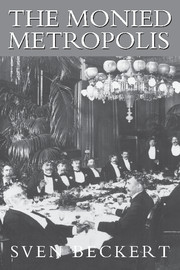Book contents
- Frontmatter
- Dedication
- Contents
- Maps, Graphs, and Illustrations
- Acknowledgments
- Abbreviations
- The Monied Metropolis
- Introduction
- Part I Fortunes, Manners, Politics
- I Accumulating Capital
- 2 Navigating the New Metropolis
- 3 The Politics of Capital
- Part II Reluctant Revolutionaries
- Part III A Bourgeois World
- Epilogue
- Notes
- Index
2 - Navigating the New Metropolis
Published online by Cambridge University Press: 05 July 2014
- Frontmatter
- Dedication
- Contents
- Maps, Graphs, and Illustrations
- Acknowledgments
- Abbreviations
- The Monied Metropolis
- Introduction
- Part I Fortunes, Manners, Politics
- I Accumulating Capital
- 2 Navigating the New Metropolis
- 3 The Politics of Capital
- Part II Reluctant Revolutionaries
- Part III A Bourgeois World
- Epilogue
- Notes
- Index
Summary
Emboldened by New York's emergence as a center of world trade and finance, New York's merchants and bankers moved to project their economic power into the city. There, however, they collided with the disconcerting sights, sounds, and smells of life below the decks of merchant respectability. They met there a citizenry, by no means all poor or powerless, unafraid to contest their claims to stewardship. Indeed, the very economic boom that had transformed their economic prospects, enriching them beyond all expectations, had also undermined their relatively stable, deferential, and manageable port city. Especially the city's public spaces were an affront as the city's merchants and bankers had built few bourgeois cultural institutions and had to fight for control over the handful of cultural venues that existed. Their visible and boisterous adversaries came from the urban masses, whose labor was necessary to their enterprises and whose admission tickets financed New York's predominantly commercial cultural institutions. But the 1850s also marked the gradual yet fateful emergence of a powerful new social group: the artisans turned manufacturers. While often beholden to merchant capital, these men were gaining sufficient wealth and power in the 1850s to strain the age-old association of respectability with merchant gentility. And while they may have shared merchants' providential belief in material progress, they were coming to their own divergent, unsettling conclusions about the direction, the agents, and the obstacles in the path of America's destiny.
Information
- Type
- Chapter
- Information
- The Monied MetropolisNew York City and the Consolidation of the American Bourgeoisie, 1850–1896, pp. 46 - 77Publisher: Cambridge University PressPrint publication year: 2001
